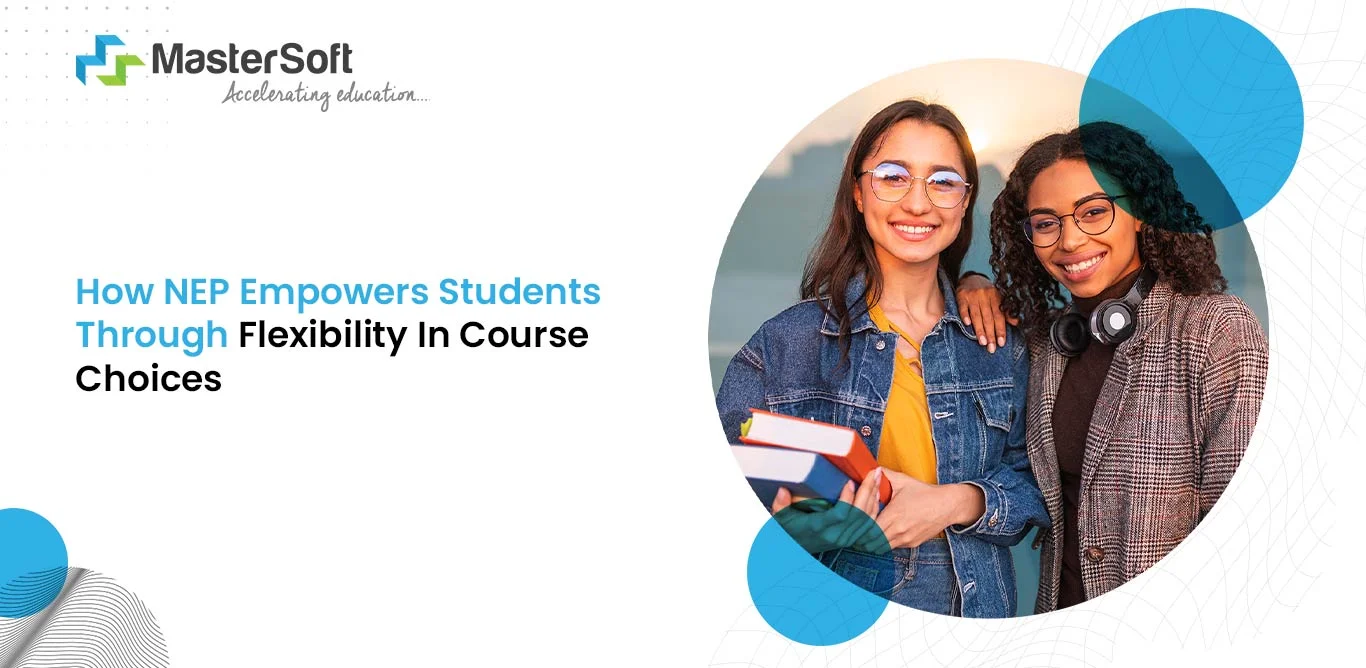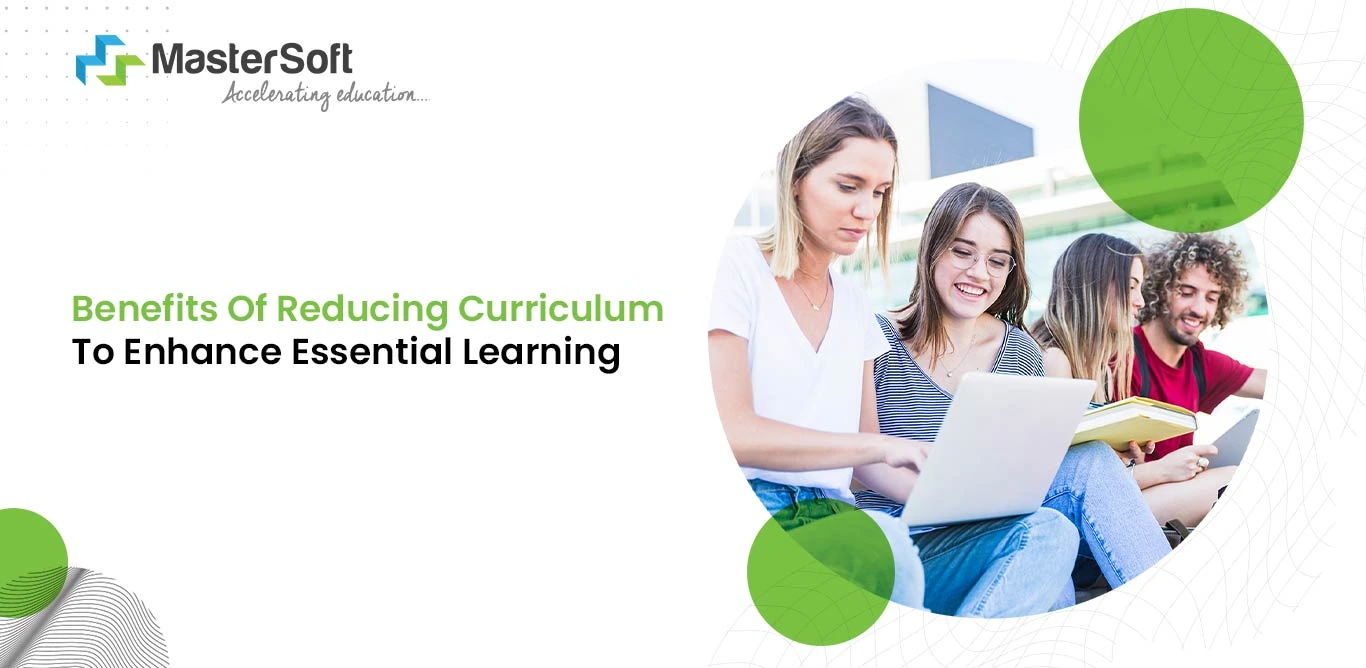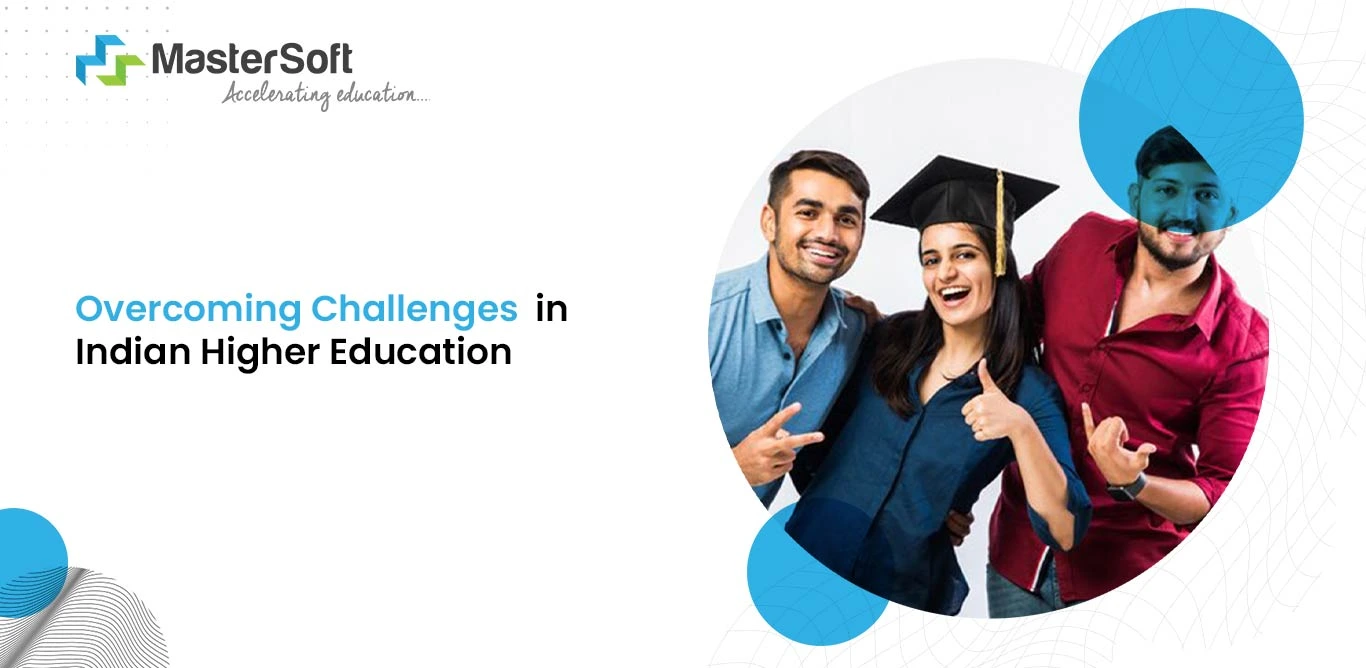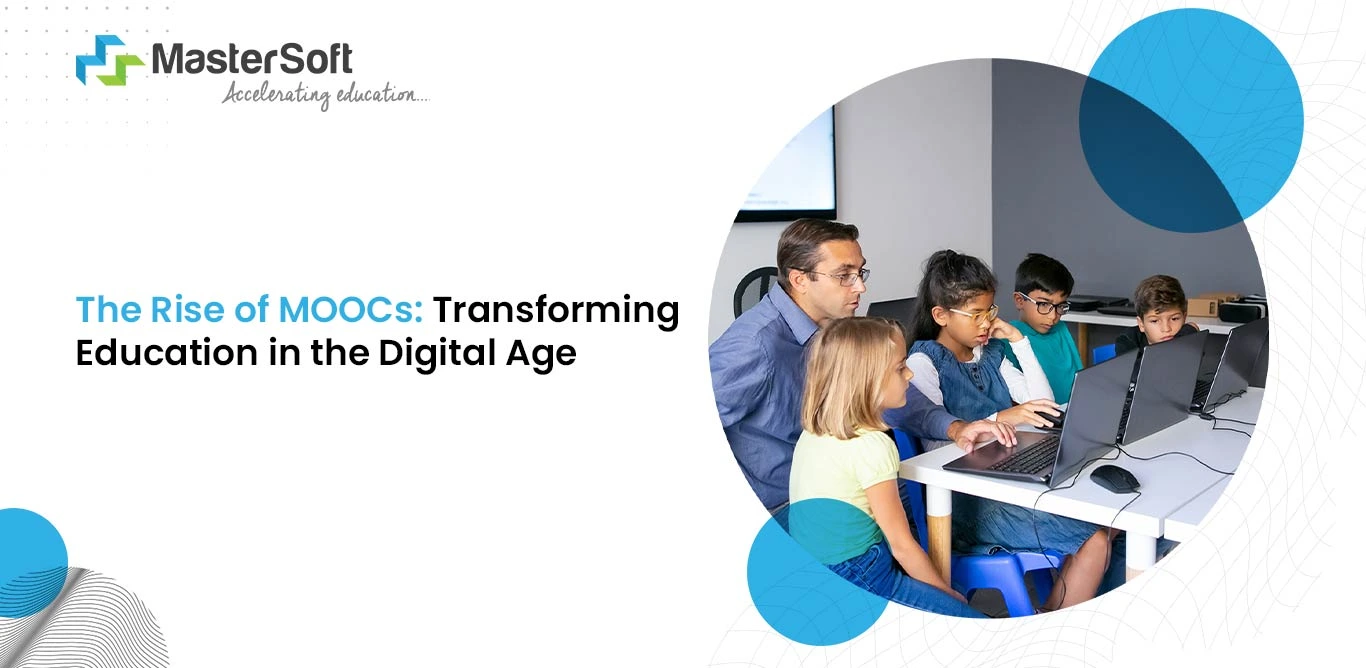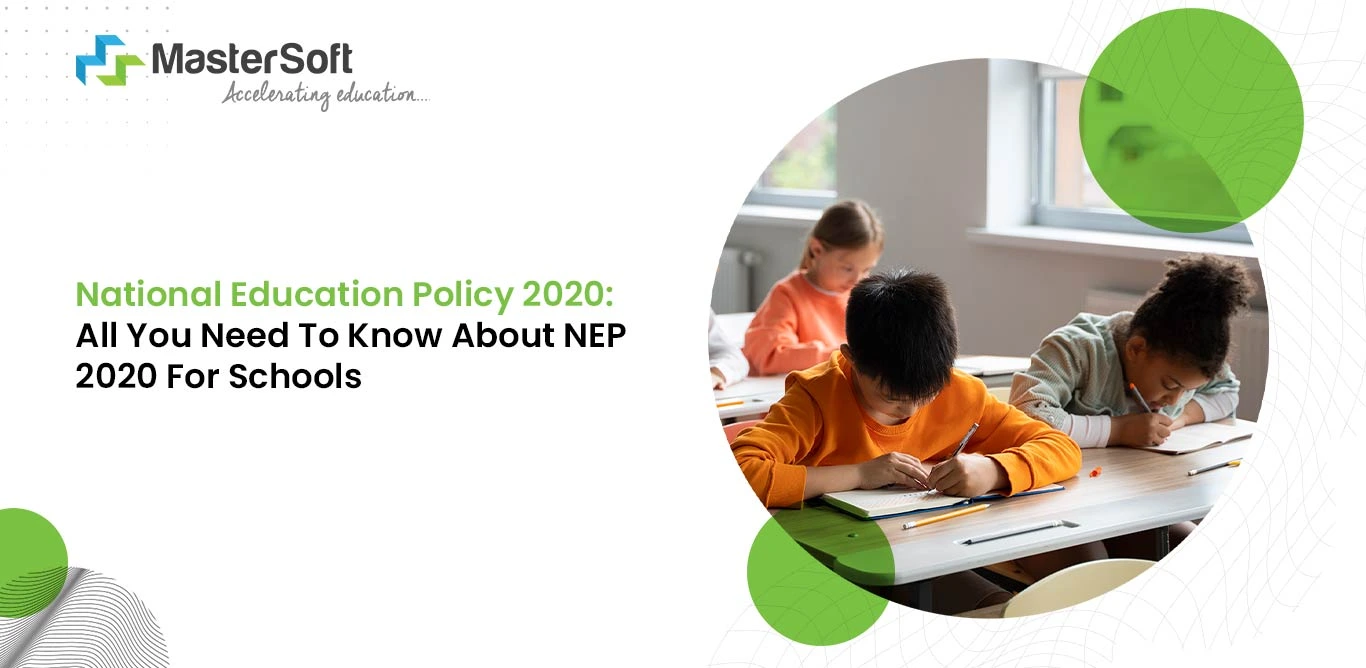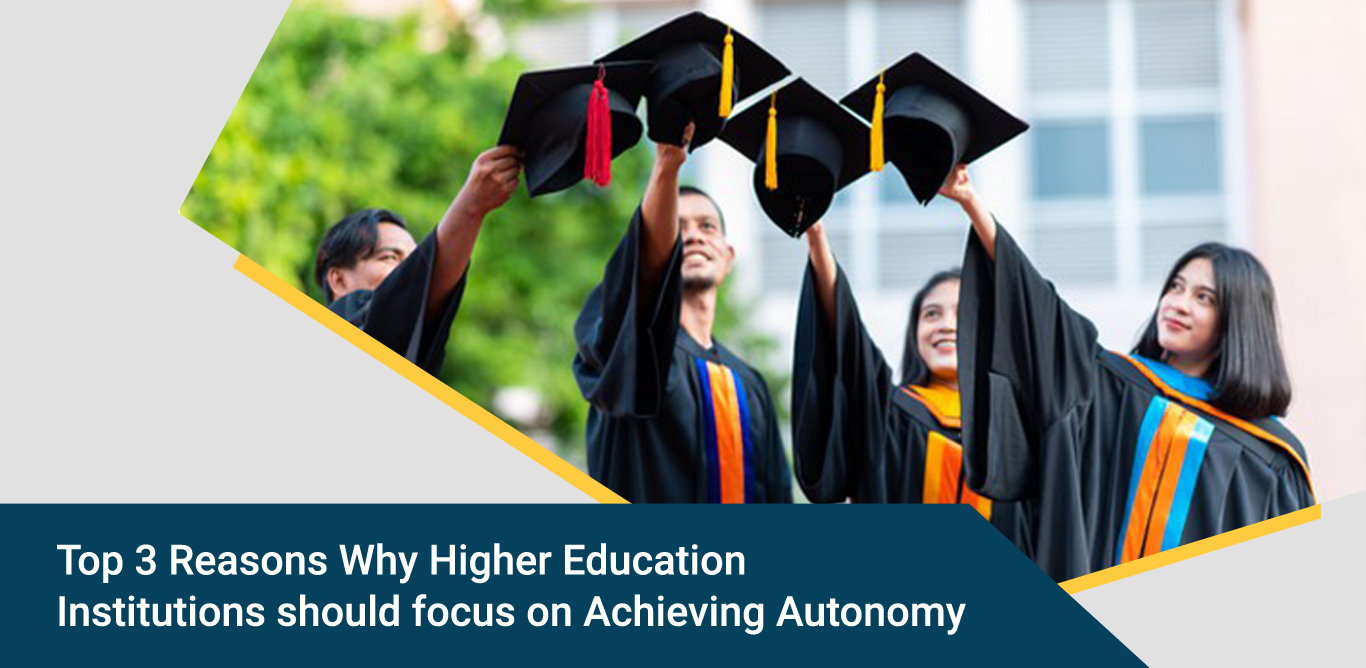18, Dec 2023
The National Education Policy 2020 (NEP 2020) plays a pivotal role in shaping the future of India. The recent revamp of NEP 2020 has ushered in a wave of positive changes, particularly in empowering students through increased flexibility in course choices.
This shift represents a departure from the traditional, rigid educational structure and aims to cater to the diverse talents, interests, and career aspirations of the students. The National Education Policy 2020 recognises the changing dynamics of the global workforce, emphasising the need for a diverse skill set that goes beyond the traditional boundaries of arts, commerce, and science.
Let's understand the key aspects of how the NEP is empowering students by providing them with greater autonomy and flexibility in their academic pursuits.
Breaking Down Traditional Silos:
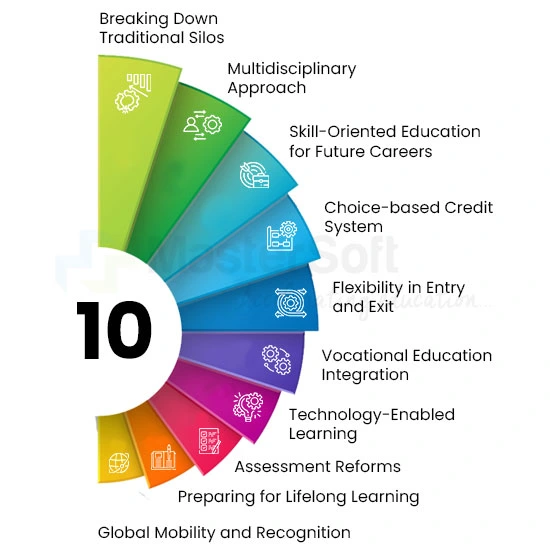
The NEP 2020 challenges the conventional separation between arts, humanities, sciences, and vocational education. By doing away with the rigid distinctions that often pigeonhole students into predefined career paths, the policy opens up a myriad of possibilities.
Students are now encouraged to explore a mix of subjects that align with their interests, allowing for a more holistic and personalised educational journey.
Multidisciplinary Approach:
One of the key highlights of the NEP compliance is the emphasis on a multidisciplinary approach to learning. Earlier, students were confined to specific streams - science, commerce, and arts - with limited scope for crossover.
However, the new policy encourages a holistic approach, allowing students to choose subjects from different streams. This not only broadens their knowledge base but also fosters a more well-rounded understanding of various disciplines. For instance, a student passionate about both physics and economics can now seamlessly pursue both subjects, paving the way for a more versatile skill set.
Skill-Oriented Education for Future Careers:
The contemporary job market is evolving towards a preference for multi-disciplinary skills. The NEP acknowledges this shift and seeks to prepare students for the demands of the future workplace.
By fostering a curriculum that integrates diverse subjects, students develop a versatile skill set that is not confined to a specific domain. This approach aligns with the current trend where employers value adaptability, critical thinking, and a broad knowledge base.
Choice-based Credit System (CBCS):
The implementation of a Choice-based Credit System is a game-changer in higher education. Under this system, students have the freedom to choose courses based on their interests and aptitude. Each course comes with a certain number of credits, and students accumulate credits to complete their degree.
This approach not only allows for a personalised learning experience but also facilitates the integration of vocational and academic education. The CBCS enables students to tailor their courses, making education more relevant to their career goals.
How To Implement Choice Based Credit System (CBCS)?
Flexibility in Entry and Exit:
The NEP 2020 introduces a flexible entry and exit system for undergraduate programs. Students now have the option to enter and exit a degree program at different stages, receiving due recognition for the completed years of study.
This is particularly beneficial for students facing unforeseen circumstances or those who wish to explore diverse academic avenues. The flexibility in entry and exit points promotes lifelong learning and discourages the perception of rigid timelines for educational pursuits.
Vocational Education Integration:
Recognising the importance of vocational education, the National Education Policy 2020 integrates vocational courses into mainstream education. This move is aimed at bridging the gap between academic learning and practical skills required in the professional world.
Students can now opt for vocational courses alongside their regular academic curriculum, gaining hands-on experience and enhancing their employability. This integration ensures that education is not just about theoretical knowledge but also about practical application and skill development.
Technology-Enabled Learning:
The NEP compliance acknowledges the role of technology in modern education and promotes the integration of digital tools and platforms. This shift towards technology-enabled learning provides students with access to a vast array of courses and resources beyond the confines of traditional classrooms.
Virtual classrooms, online courses, and e-learning platforms contribute to the flexibility of learning, allowing students to choose when and where they study. This is particularly advantageous for those who may have other commitments or prefer a self-paced learning approach.
Assessment Reforms:
The NEP 2020 policy brings about significant changes in the assessment methods, moving away from rote memorisation towards a more holistic evaluation. Continuous and comprehensive evaluation methods are encouraged, including project work, presentations, and practical assessments.
This shift not only reduces the undue stress associated with high-stakes exams but also allows students to showcase their understanding through diverse means. This flexibility in assessment aligns with the NEP's broader goal of nurturing critical thinking and problem-solving skills among students.
Preparing for Lifelong Learning:
The multidisciplinary approach not only prepares students for immediate career paths but also instil a sense of lifelong learning.
By encouraging exploration and a variety of subject choices, the national education policy 2020 sets the foundation for individuals who are not only specialists in their chosen fields but are also adept at adapting to new challenges and acquiring new skills throughout their lives.
Global Mobility and Recognition:
The NEP compliance aims to make Indian education globally competitive by fostering international collaborations and partnerships. With a focus on a more flexible and inclusive system, students can benefit from exchange programs, joint degrees, and credit transfers with foreign institutions.
This not only broadens their perspectives but also enhances the global recognition of their qualifications. The newfound flexibility in course choices aligns with the global trend of recognizing the importance of a varied skill set and interdisciplinary knowledge.
Understanding NEP Compliance: A Comprehensive Guide
How Does Flexibility in Course Choices Empower Students?
- The multidisciplinary approach not only grants students the freedom to choose subjects but also places a significant emphasis on informed decision-making.
- Recognising the importance of career guidance, the policy encourages schools and educators to play an active role in enlightening students about the real-world applications of their chosen subjects.
- It underscores the need to streamline the educational process by ensuring that teachers are equipped to guide students effectively.
- This involves ongoing teacher training programs that focus on understanding evolving career landscapes, emphasising the importance of each subject, and nurturing the development of essential skills.
- This involves delineating the potential career paths associated with each subject and the skills that need to be honed for success in those fields.
Summing Up,
The National Education Policy 2020 emphasis on flexibility in course choices is a significant step towards creating a more inclusive, adaptable, and student-centric education system. The integration of vocational education, technological advancements, and assessment reforms further contribute to a more holistic and relevant learning experience.
Also, the multidisciplinary approach introduced by the NEP compliance in secondary education is a cornerstone in the paradigm shift towards a more flexible and student-centric education system. As the implementation of the NEP 202 progresses, it is expected to not only transform the education landscape in India but also inspire similar reforms globally, setting a precedent for student-centric, flexible education systems.
Connect With MasterSoft - Your One-Stop ICT Solutions Aligned With NEP 2020
Mobile: 08448010216
Email:info@mastersofterp.com

